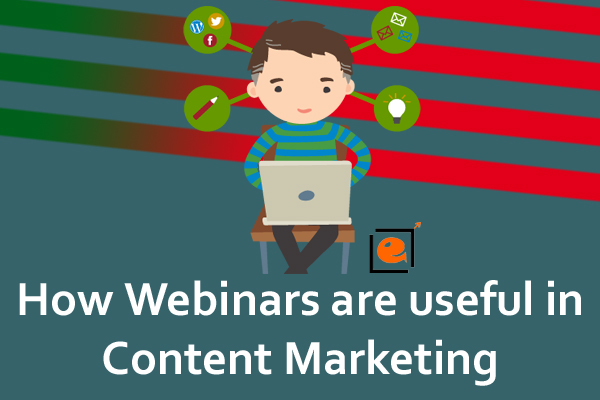Artificial Intelligence Impacting Content Marketing: How Marketers are Gaining?
Artificial intelligence (AI) is finally here. It has come a long way since the days when Alan Turing raised the question whether machines can really think. That was in 1950.
Artificial intelligence is delivered by machines that perform cognitive functions of human minds such as learning and problem-solving.
As has been noticed, Artificial intelligence is changing the landscape of content marketing. AI in content marketing means more streamlining of processes at a time content overload is a problem.
Now the marketing field is excited at the opportunities offered by artificial intelligence (AI) with marketers looking to conquer new territories with ultrasonic efficiencies in promoting their offerings.
They are clear that AI is no fad and will stay here. Seeing a big opportunity, marketers are aiming high with AI to improve efficiency and greater automation of tasks. In content they are seeing the potential upfront–chatbots, copywriting, and content curation as assets driving consumer engagement.
AI is Business Advantage
According to a survey by PwC, most business leaders believe AI is paradigm shift and all future business processes will be AI driven. AI is considered a business advantage by 72 percent of businessmen.
IDC predicts 40 percent of all digital transformation and 100 percent of IoT efforts being led by AI capabilities starting 2019.
Role in Content Marketing
Perhaps AI has scaled up more expectations in the realm of customer experiences with the following benefits
- Improvement in the content and creative process
- Helping to personalize experiences with a scale
- Improves customer satisfaction
For Marketers, there are plenty of areas to experiment with AI.
There had been a lurking fear among marketers that AI will dislodge jobs as in science fiction where robots are shown taking over the whole world. But available trends do not portend such a doom scenario and is indicating that AI intervention can heighten the quality of user experiences and achieve greater customization and personalization.
Artificial Intelligence helps marketers to leverage vast amounts of data for optimizing customer experiences. This is done by making sense of information at a deeper level including the sentiments and quality of images.
AI in content marketing also means identifying and refining things in seconds that was done in so many days.
New Speed for Tasks
Marketers are known to handle tedious and time-consuming tasks. Thanks to self-learning algorithms of AI, greater efficiency comes to tasks. For example, AI does the most time-consuming asset tagging in seconds which includes inserting content-based metadata for thousands of images.
Boost for Decision Making
AI induces amazing speed in decision making and content personalization by aligning content to the tastes of users.
The impact of AI has raised questions whether a drastic change in marketing strategy is required. The definite answer is hard to come as the decision hinges on the priorities of a business.
To leverage AI advantage in marketing, marketers have to lay down business priorities and modify roles to suit the work done by AI. One major advantage will be AI will be the support for marketers in conquering new territories of marketing.
Narrative Science in a study says 61 percent businesses are exploring innovation strategies and they will turn to AI to tap opportunities in data that remained beyond their reach in the past.
AI Impact on Consumer
For customers, there will be no outright impact to show that AI is taking special care of them. But they feel the difference in the apparent rapidity and brilliance of personalized experiences they are getting.
This is evident in a survey by Adobe that says 42 percent consumers are miffed with irrelevant content while two-thirds said such situations will not compel them to make any purchase.
Pillars of Customer Experience
Clearly, content quality, speed, and personalization are pillars of customer experience and improving amounts to increasing profitability. AI provides customers a seamless experience throughout their interactions with a brand.
The impact of AI is multifarious—starting with online content it impacts all areas. The effect traverses to in-store experiences and across devices in creating wonderful experiences that are loved by consumers even though not tangible to them.
AI Makes Data Processing Easy
Maybe the top gain of marketers from AI is using machine learning algorithms to deliver beautiful customer experiences.
On the content side, automated content is a great plus. As we know, content marketing rules are changing every day. Blog posts are becoming long, hyper-focused web pages and personalized advertising are becoming a must and Google is regularly launching new machine learning updates.
Artificial intelligence is deciphering the ever-changing content marketing effectively by analyzing user data and making sense of user intent.
Automatic Content
By using artificial intelligence, marketers are making automatic content in stocks and sports. We have already read such content made by algorithms without explicitly knowing it.
See this opening paragraph of a sports story written by an algorithm:
“Tuesday was a great day for W. Roberts, as the junior pitcher threw a perfect game to carry Virginia to a 2-0 victory over George Washington at Davenport Field.”
Companies such as the Associated Press, Yahoo, and Fox are quite ahead in using automatically generated content.
Chatbots for User Interaction
Thanks to AI, chatbots are engaging conversation with users. Facebook Messenger uses chatbots for answering user queries in real time. Chatbots are primarily computer programs using artificial intelligence.
An example of companies leveraging AI for the innovative purpose is Sephora whose chatbot presents customers beauty content.
Using artificial intelligence social networks such as Facebook, Twitter, and Instagram are able to customize news feeds so that a user will only see the posts that really suit him.
After analyzing hundreds of variables AI can predict what content a user may like, comment, or dismiss as spam.
The algorithms lend accuracy scores to social media ads in such a way that users will see only those ads where they have any special interest.
By supplying personal information, AI helps marketers in knowing which content is most engaging and how similar content should be created to expand the social engagement.
AI Predictive Intelligence
One more area AI can deliver predictive intelligence is in making businesses efficient and helping companies understand an individual customer and personalize content.
The lead scoring under a points system determines where the prospects are placed in the buyer journey. Predictive intelligence will trace customers who may convert, based on past behavior and history.
A Gartner study endorses this. It says predictive lead scoring will deliver better ROI for marketers in Technology Provider sector.
Predictive intelligence will deliver marketers insight on the content pieces to target specific customers. User status in the buyer journey will come handy in delivering the right content to which they easily respond. Advance knowledge of content to which an audience will positively respond can make way for the future content that can splash better results.




